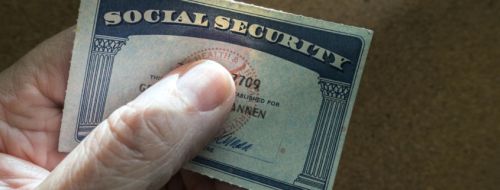Menu


Call Today (559)222-4891
Call Today (559)222-4891

Divorce brings many changes to a person's life. From coordinating child custody, growing accustomed to a new home, and navigating the economic impact of divorce, the aftermath of ending a marriage can sometimes be overwhelming. Nonetheless, one of the changes that you may be looking forward to is resuming the use of your birth name. For many, regaining their name upon the finalization of their divorce symbolically restores their sense of identity and freedom. With all the questions divorce may bring about, one of them is probably how to change your name so you can go back to your birth name and get back on track.
Changing your name after divorce is a big decision — and it's important to give it careful consideration, especially if you used the name for many years. You may have been known by the name professionally or established a business with it. It may be easier to maintain the reputation you built by keeping the name and continuing to use it in these cases.
Also, if you have children, you might prefer to have the same last name as them. While it's not uncommon for a parent to have a different last name from their children, you may be concerned about the emotional impact using a new name could have on them. It can also sometimes be easier for school, medical, and travel reasons to be connected with your child by last name.
Still, there are many reasons you may wish to change your name. Importantly, it can help you move forward with a fresh start and away from a painful past. Alternatively, if you welcomed the opportunity to leave your maiden name behind, or simply prefer your married name, you might not want to change it back.
One of the easiest ways to change your name upon divorce is by judicial decree. Before the court has granted your divorce, you can request that your name be changed when the court issues the judgment. When the court includes specific language in your decree ordering your name change, this is the only documentation you will need to leave your married name behind.
Even if your divorce judgment doesn't order a name change, you may be able to request to have it modified. If your divorce was granted within the state of California, you can make an Ex Parte Application for Restoration of Former Name After Entry of Judgment and Order by providing the form to the clerk's office. The request will usually be processed in a few weeks.
Additionally, once you're divorced, you can begin using your former surname again — regardless of whether the change has been authorized. However, using your name socially or professionally does not change it by law. You will still need to have documentation from the court in order to make alterations to your driver's license, social security card, or other legal documents.
Changing your name can be an administrative hassle. Just as you had to change it on various paperwork when you got married, the same documents will need to be modified if you choose to use your birth name again after you're divorced. Once your name has been changed, there are additional steps you will need to take to make sure your maiden name appears on all of your legal and personal documents. Although you might have been given the legal right to resume use of the name you had before you were married, you will still need to change it separately with the following:
Depending on your circumstances, there may be other entities with which you need to update your records. Generally, you can use your divorce decree to establish proof that you are legally allowed to make the change.
Although a parent may use their own birth name after divorce, ending a marriage does not automatically change the children's names. However, there can be several reasons why you might consider changing a child's last name when your marriage has ended. Perhaps you've gotten remarried and prefer your family to have a name connection. Or, you might prefer that your child has the last name of the person who raised them, rather than their biological parent.
If you would like to change your child’s surname, you can petition the court. Critically, the other parent must be served with the petition and have an opportunity to object. If both parents consent to the name change, the judge does not have to render a decision before granting the petition. But if the other parent disagrees, the judge will make a determination that meets the best interests of the child.
The process of changing your name after a divorce can sometimes be confusing. It's best to work with an attorney who can ensure the necessary language is included in your judgment so you can resume use of your former name once the order has been issued. Offering knowledgeable counsel and high-quality legal services, The Law Offices of Rick D. Banks is dedicated to providing reliable representation for a variety of matrimonial matters.
The Law Offices of Rick D. Banks has been representing clients throughout Fresno and the surrounding area with their divorce and family law cases for more than 20 years. To schedule a no obligation consultation, call (559)222-4891.
© 2024 The Law Offices of Rick D. Banks|Legal Disclaimer|Privacy Policy